

We may earn revenue from the products available on this page and participate in affiliate programs. Learn More ›
The year 2023 has been busy for the Bob Vila team, and several of the articles we shared with our readers focused on making the most of the household items you likely have in your home right now, such as vinegar, baking soda, Windex, or even Alka-Seltzer. And, as it turns out, there are more ways to use these common household items than you might think. Read on to discover some of the most surprising uses for these items that are probably sitting on a shelf in your home right now.
Use castor oil to fix squeaky door hinges.
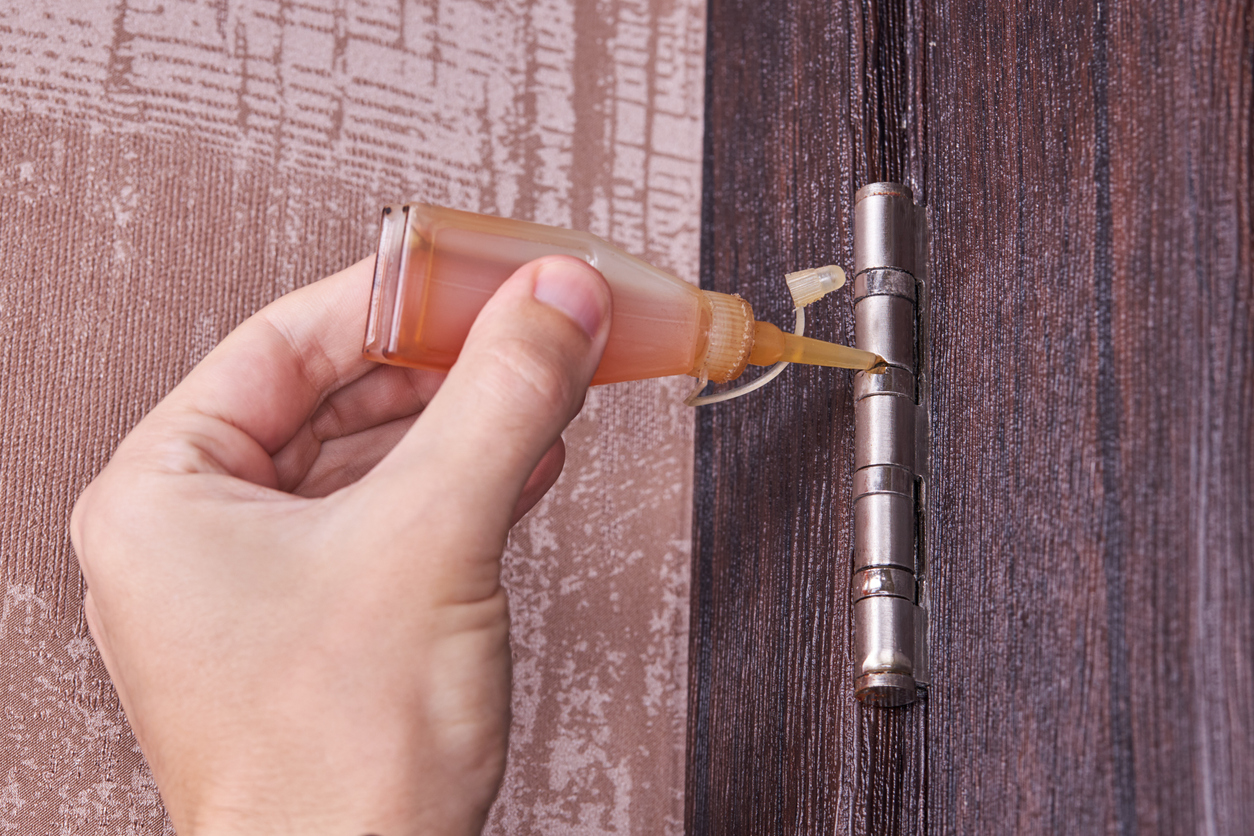
The next time you have a squeaky door, just reach for a bottle of castor oil. The thick oil can coat the hinges to eliminate squeaks and creaks. Castor oil is also completely safe to digest, so you can use it around the house with little worry, particularly if you have young children or pets. Use castor oil to lubricate more than just door hinges. It can also help keep your kitchen shears functioning properly, aid in lubricating tools, and more.
Remove sticker residue with some Windex.
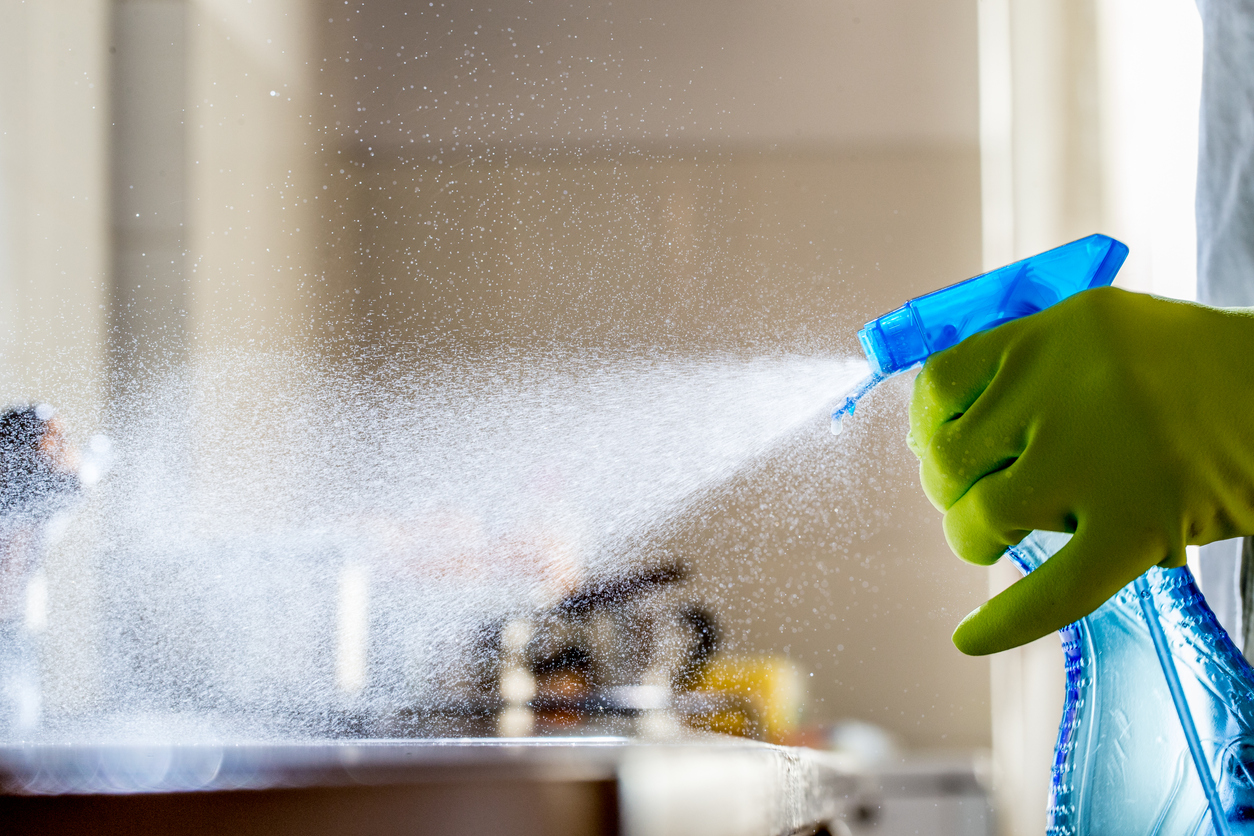
The residue left behind by stickers and price tags can seem impossible to remove. Next time you find yourself facing such a situation, save your nails and grab a bottle of Windex instead. Spray the solution over stickers on hard surfaces, such as mirrors, picture frames, and plastic containers, and let it sit for about 5 minutes. The Windex will loosen the stuck-on mess, allowing you to simply wipe it away.
Keep snow from sticking to shovels with Vaseline.
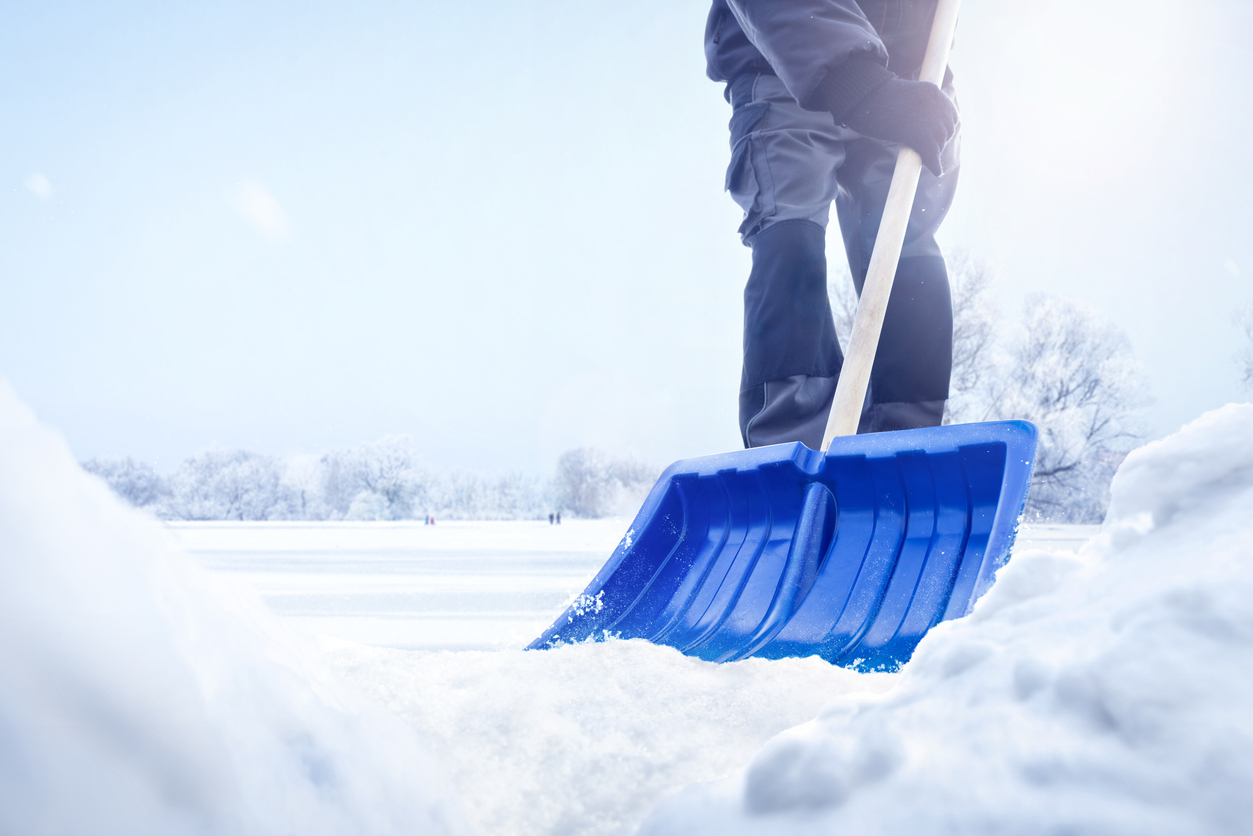
Shoveling snow from a driveway or walkway is difficult enough. You don’t need the added hassle of the snow sticking to the shovel as you work. To combat this frustration, spread some Vaseline over the front and back of the blade before heading out to shovel. Snow won’t stick to the coated surface, allowing you to get the job done as quickly as possible.
Rub aluminum foil on clothing to get rid of static electricity.
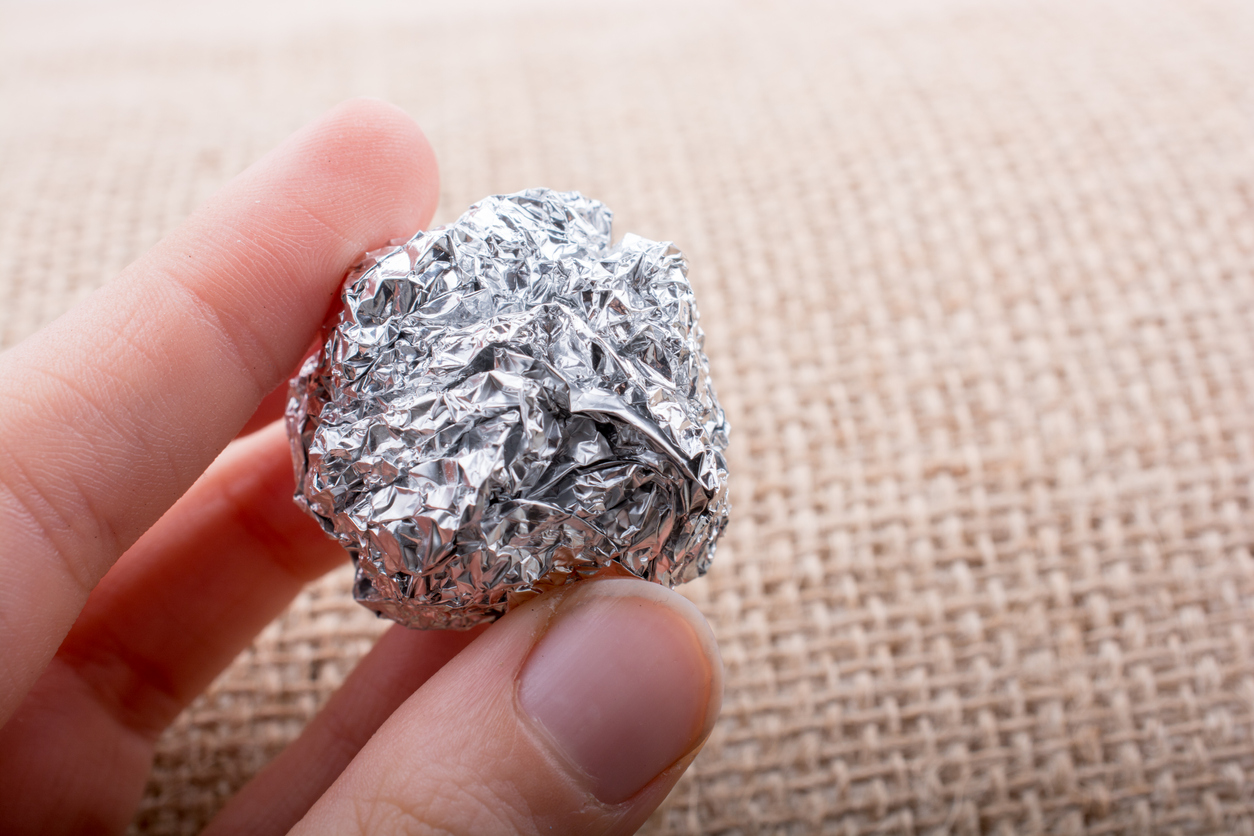
Static electricity can be a pain, but it doesn’t have to ruin your outfit. The next time fabric clothing is plagued by static cling, a sheet of aluminum foil can help you quickly move on with the rest of your day. Just rub the foil across your clothing to neutralize the electrostatic charges that are causing your clothes to cling together.
Deter pests from invading your garden by sprinkling used coffee grounds.
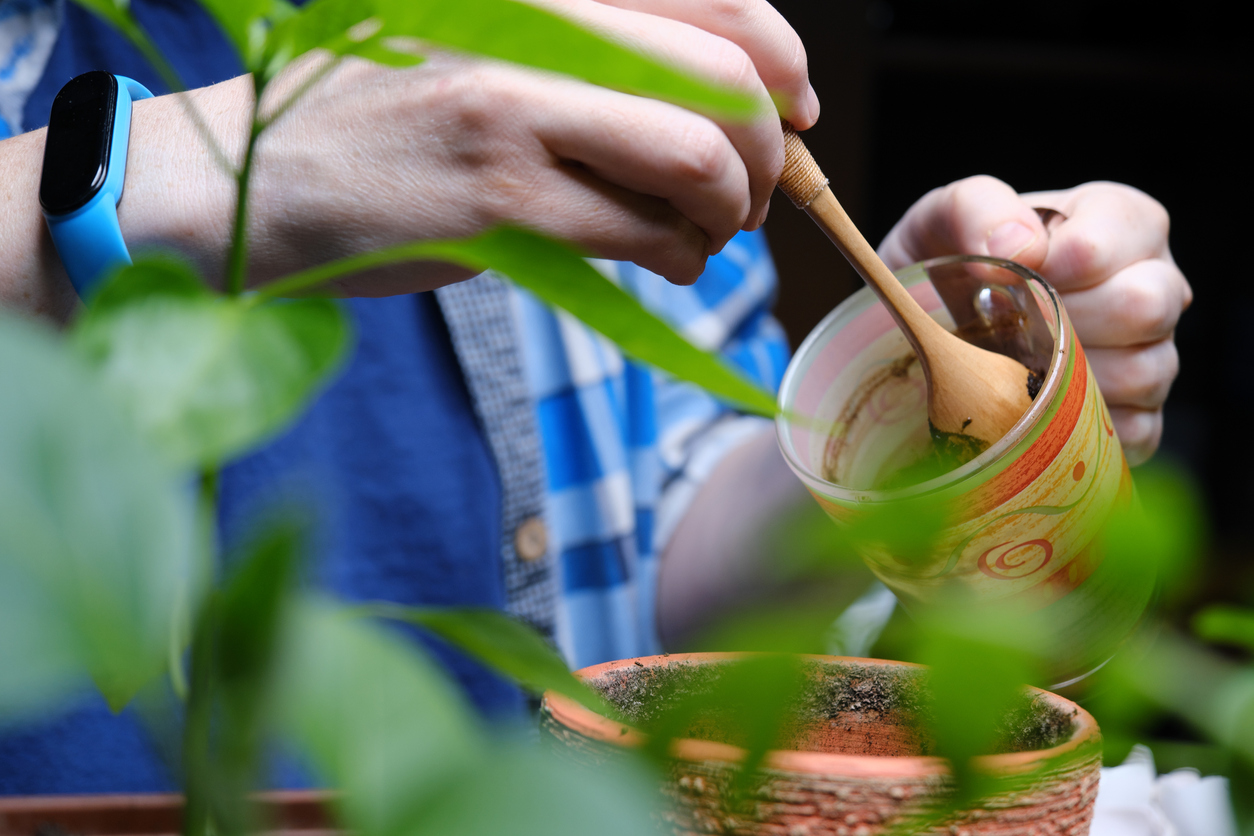
Instead of dumping the coffee grounds from your morning cup of joe, save them to put to good use in the garden. The gritty texture and high acidity of the grounds can help repel a variety of pests, including ants, slugs, and snails, from invading your garden. Coffee grounds can also help keep your neighbor’s cat from turning your garden into its personal litter box; the felines are deterred by the strong coffee scent. And, as a bonus, while you’re keeping pests away from the garden, you’ll also be attracting beneficial earthworms that find the grittier texture of the grounds helpful when digesting food.
DIY a no-sew bag using some duct tape.

Duct tape can be a true lifesaver for a variety of home improvement tasks, but you can also use it to DIY some fashionable accessories. Folding the tape over itself creates study, double-sided sheets that you can combine to make no-sew bags, wallets, keychains, and more. Instead of sticking with the original silver-colored duct tape, try some of the many color and pattern options to make a stylish, one-of-a-kind piece like these colorful duct tape wallets by AnnAshley89 at Etsy.
Repurpose old light bulbs by turning them into mini terrariums.
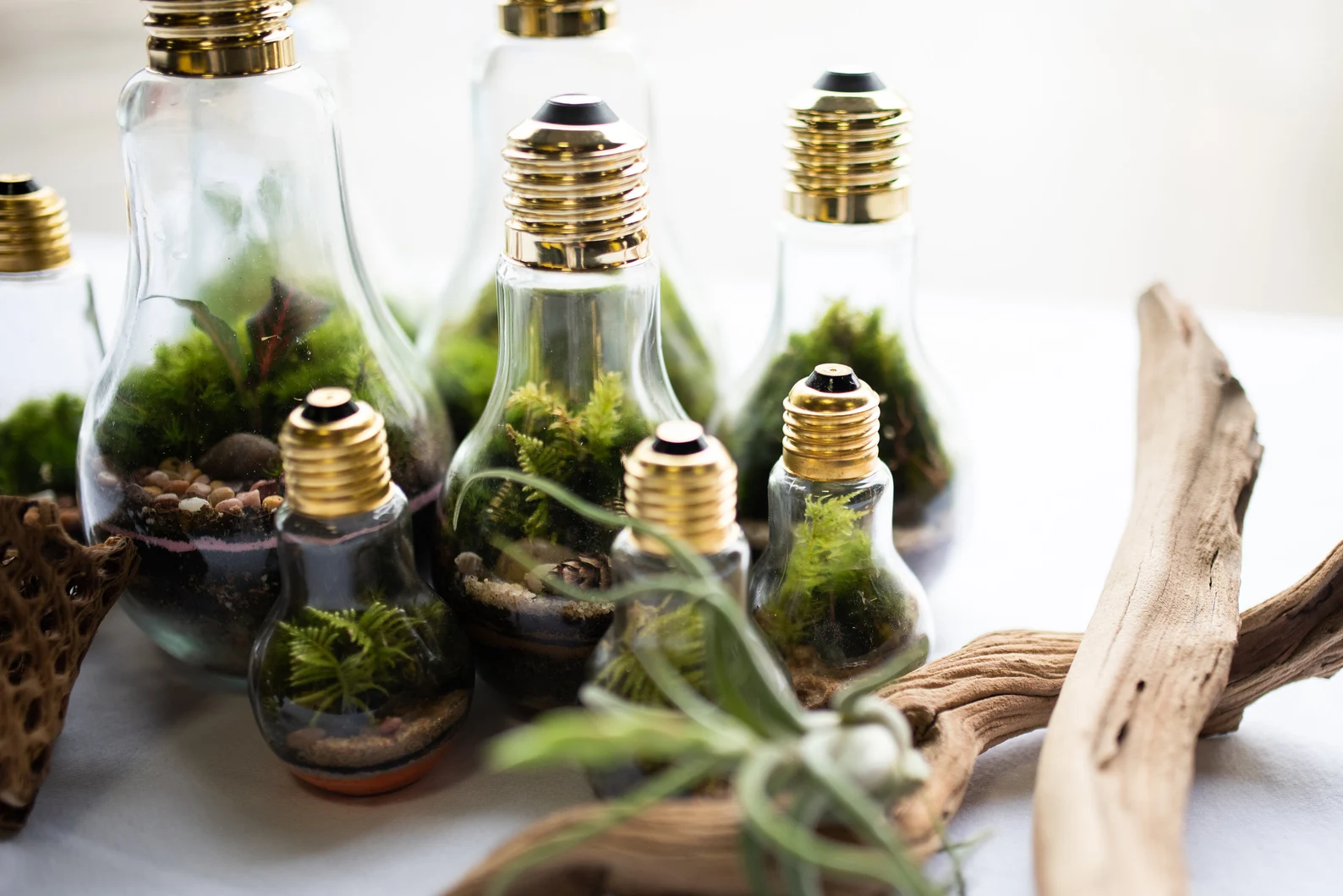
Burnt-out light bulbs don’t have to end up in a landfill. Instead, repurpose them into something new, such as a mini terrarium. Carefully unscrew the end of the bulb and remove the filament. Then, you can add some moss, greenery, and tiny plants. We like these light bulb jar terrariums by MyDIYTerrarium at Etsy for inspiration.
Save old pillowcases for dusting the ceiling fan.
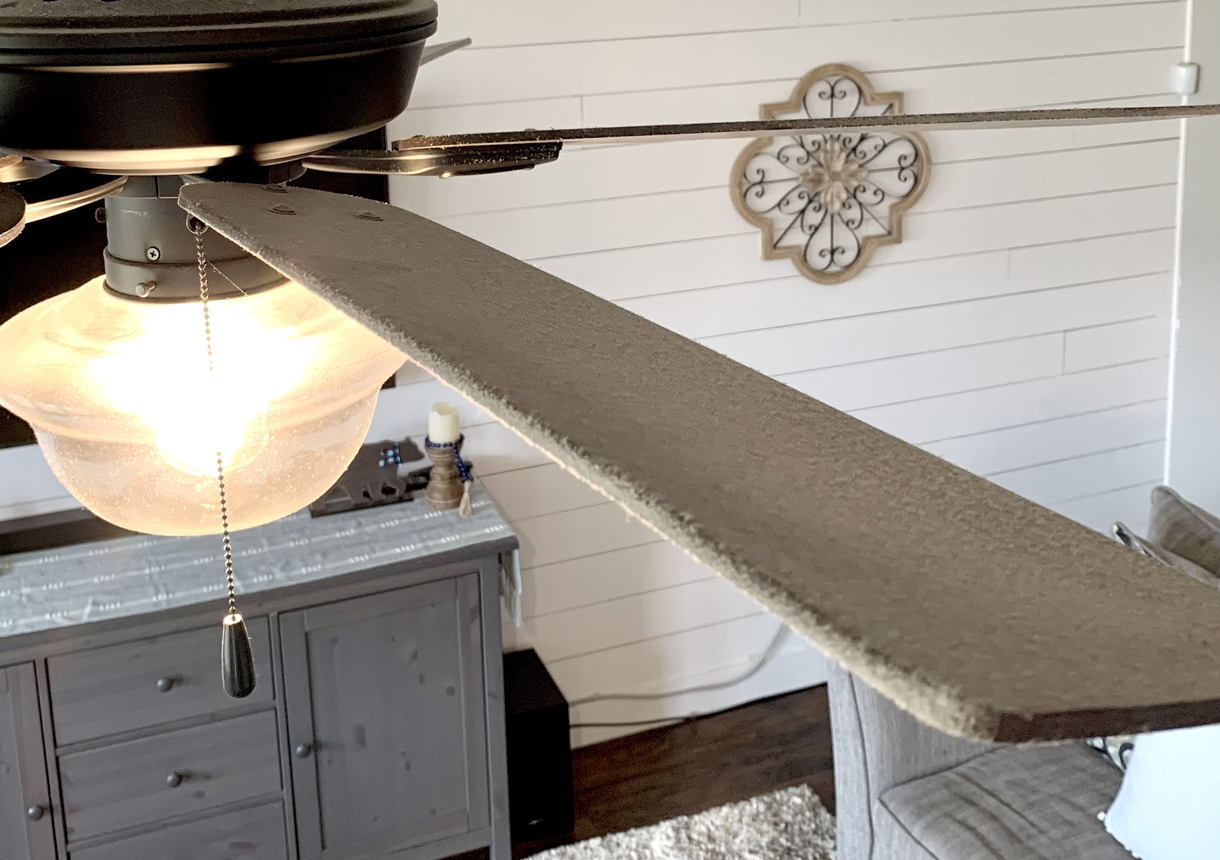
Ceiling fans can be one of the most difficult things in a house to dust. They’re difficult to reach, and the dust always seems to slide off onto the floor instead of sticking to your duster. Avoid dealing with this frustration by saving old pillowcases. Place the pillowcase around the blade and then carefully slide it off. It will pull the dust off with it, but instead of dropping to the floor or floating around in the air, the dirt and dander will remain trapped inside the case
Keep plants pest-free with hydrogen peroxide.
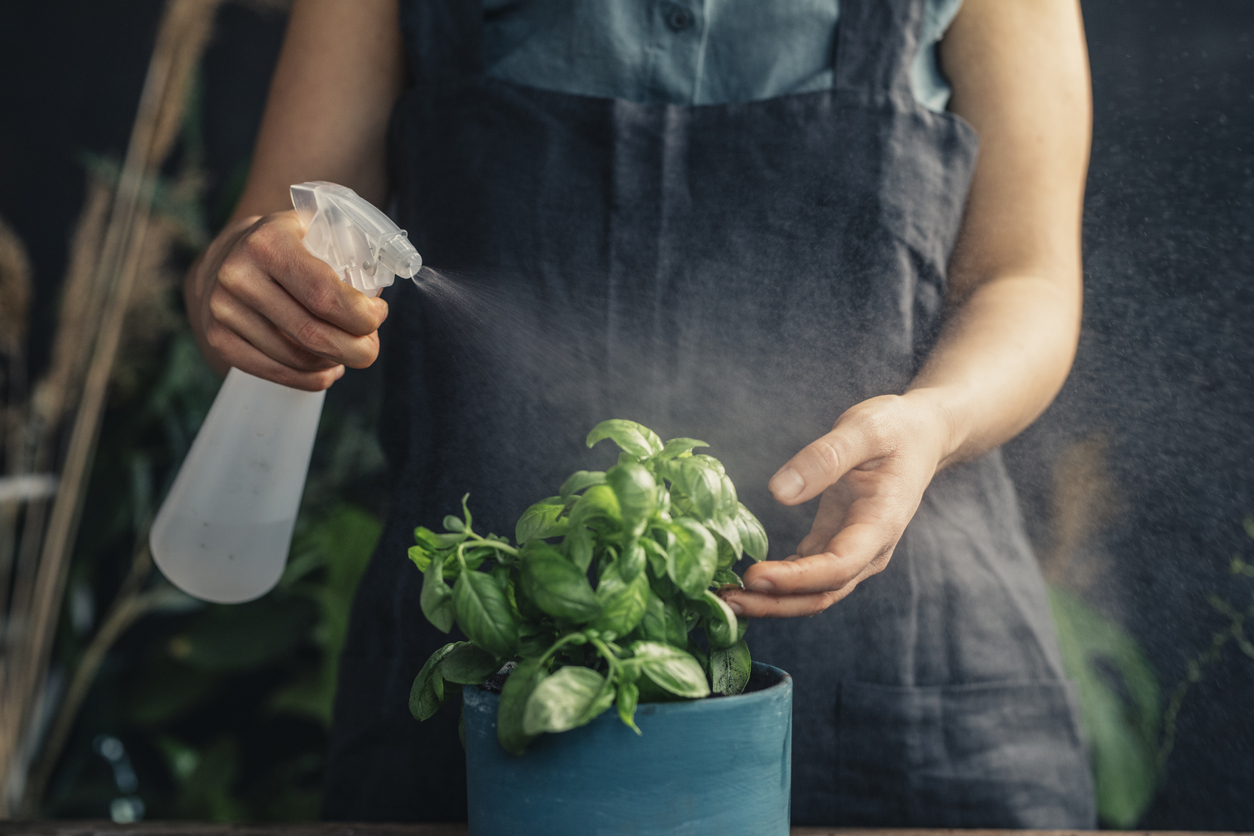
No gardener likes discovering that pests are threatening their plants. Fortunately, the hydrogen peroxide inside your medicine cabinet can help combat this problem. Spray a water and hydrogen peroxide solution on the tops and undersides of the plant leaves. It will kill pests that are present. Keep in mind that you don’t want to use too much hydrogen peroxide as it may cause the plant to wilt or dry out; follow a ratio of 1 gallon of water to ½ cup of 3-percent hydrogen peroxide.
Keep crafting supplies organized with silicone baking cups.
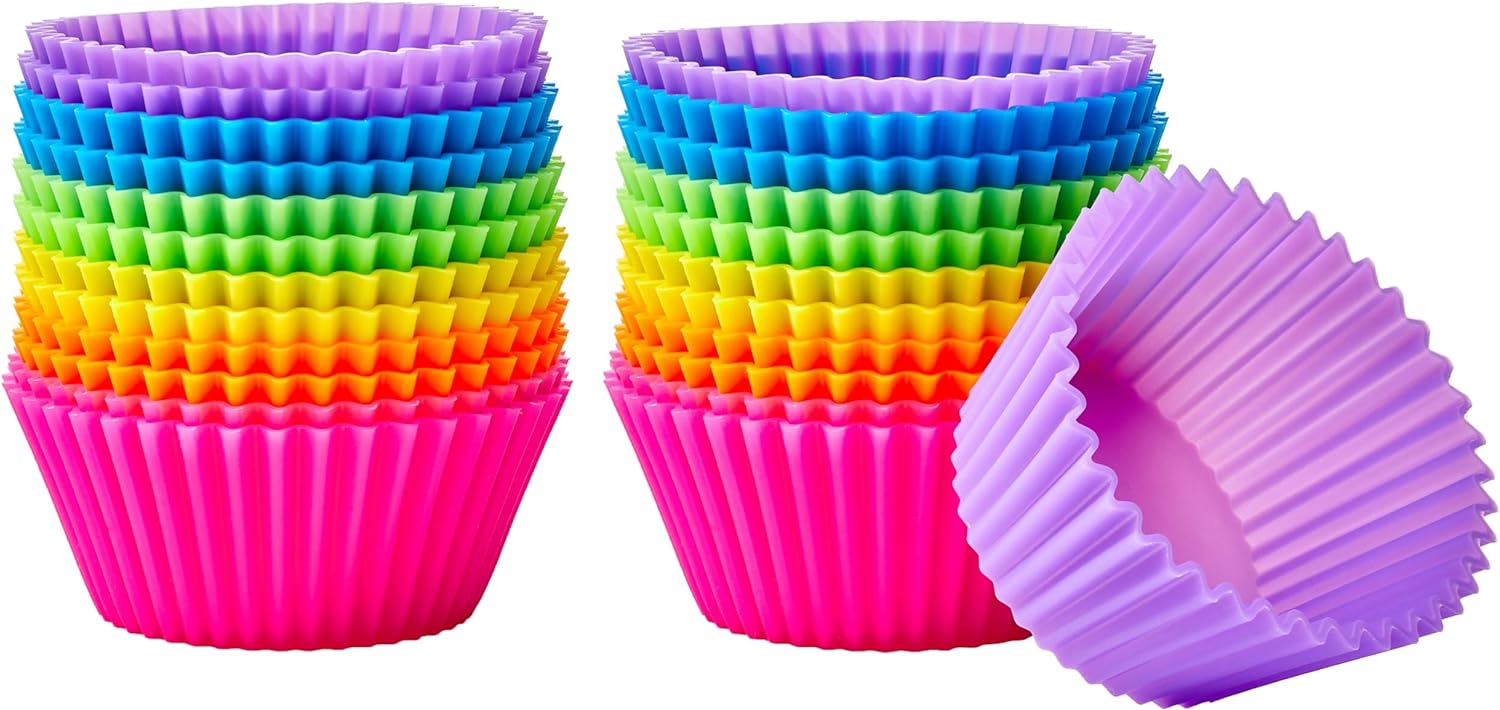
The silicone baking cups that make it easier to bake delicious cupcakes and mini quiches can also help out in the craft room. They’re small and sturdy, which is ideal for keeping beads, stickers, pom-poms, and other smaller items separated and off the table or floor. They can help with everything from adult scrapbooking gatherings to children’s art projects.
Use a little vinegar to refresh clothes without pulling out the iron.
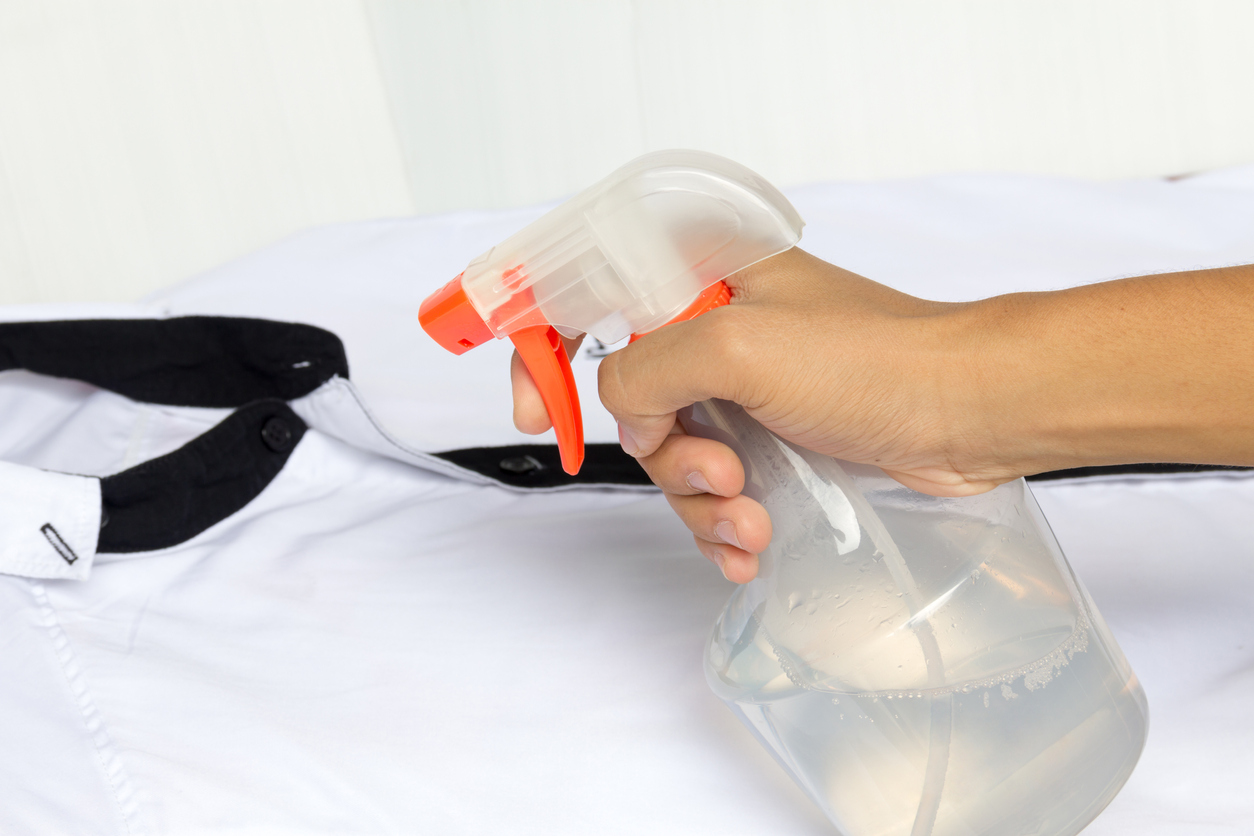
If one of your shirts or pairs of pants has a few wrinkles, smooth things out without pulling out the bulky iron and ironing board. Believe it or not, a little bit of vinegar can solve this problem. Add three parts water and one part distilled white vinegar to a spray bottle and use it to mist the wrinkled sections. Then, simply leave the garment hanging to dry, and when you return it should be wrinkle-free.
Polish chrome bathroom fixtures with a dryer sheet.
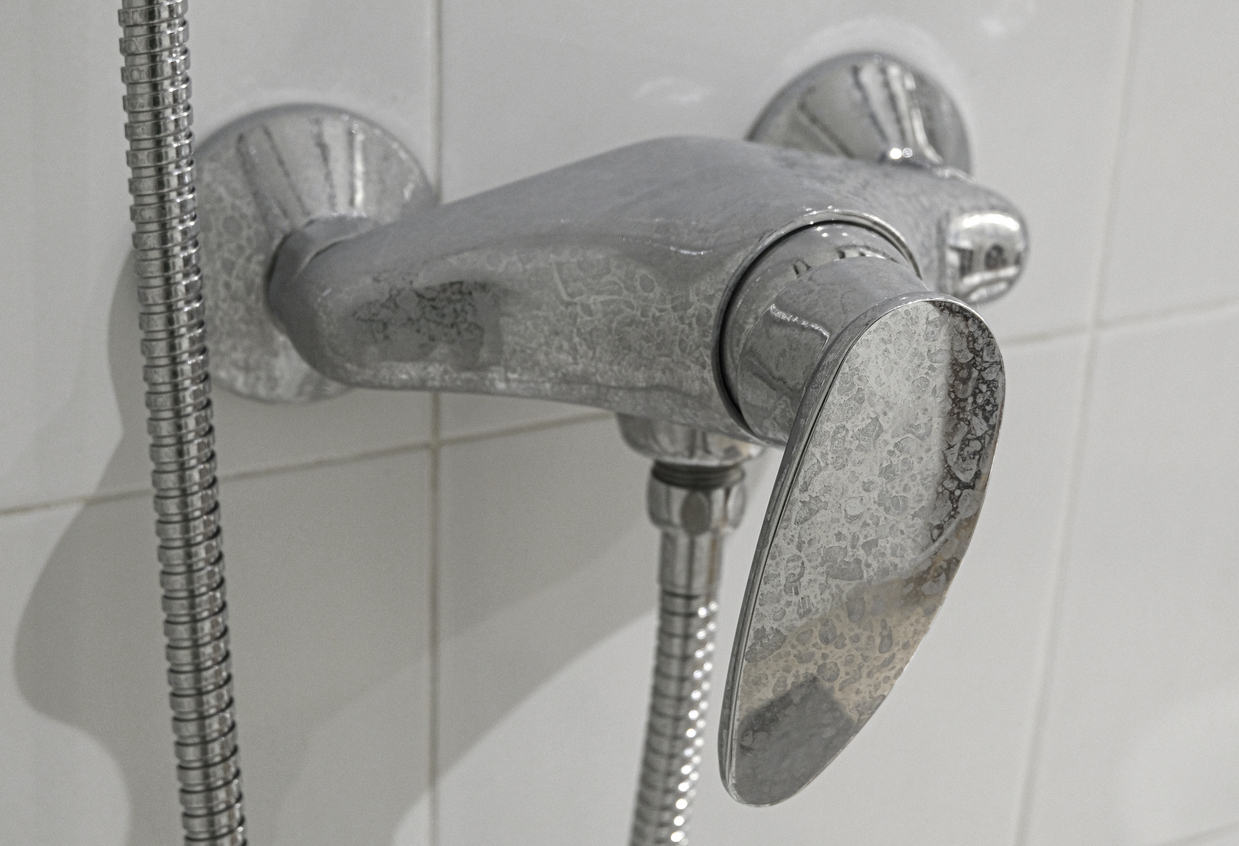
Chrome faucets and other fixtures can bring a sleek and modern look to a bathroom. However, they can become covered with water spots or hard water deposits, making them look less than attractive. If you need a quick fix to restore their luster, moisten a dryer sheet with a little bit of water and use it to wipe down all the fixtures in the bathroom.
Protect tools from rusting with some rice.

Rice acts as a desiccant, which means that it absorbs moisture. As a result, the common pantry staple can help save your tools from rusting in a moist garage, laundry room, shed, or basement. Simply put about ½ cup of rice inside your toolbox (you can place it in a small mesh bag) and let it do its job.
Banish weeds from the garden with baking soda.
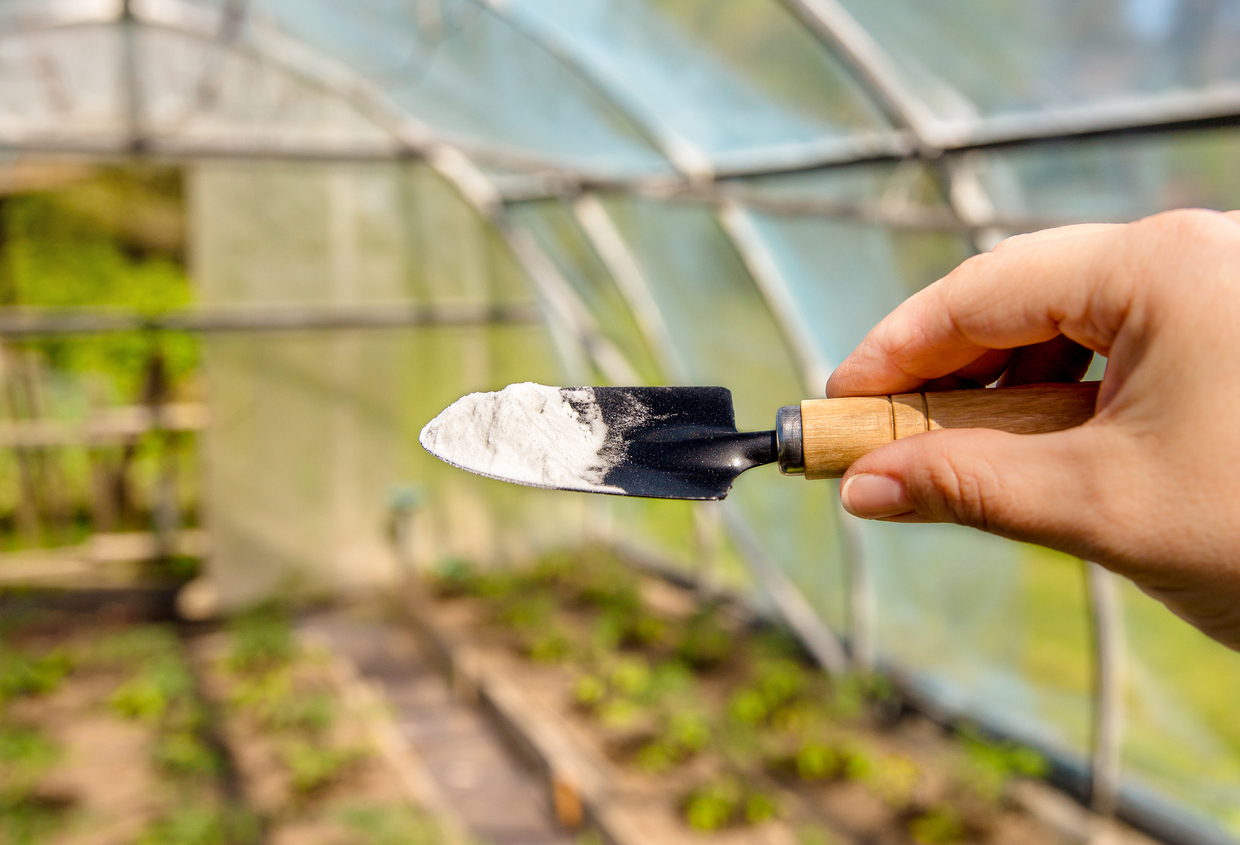
You add baking soda to cakes and cookies and use it to clean surfaces in the house; it can also help you out in your garden. Baking soda is a base, so sprinkling it on weeds or mixing it into the soil can help prevent weeds from being able to grow. However, weeds aren’t the only things it will stop from growing; apply baking soda away from other plants that you do want in your garden.
Freshen up your coffee maker with Alka-Seltzer.
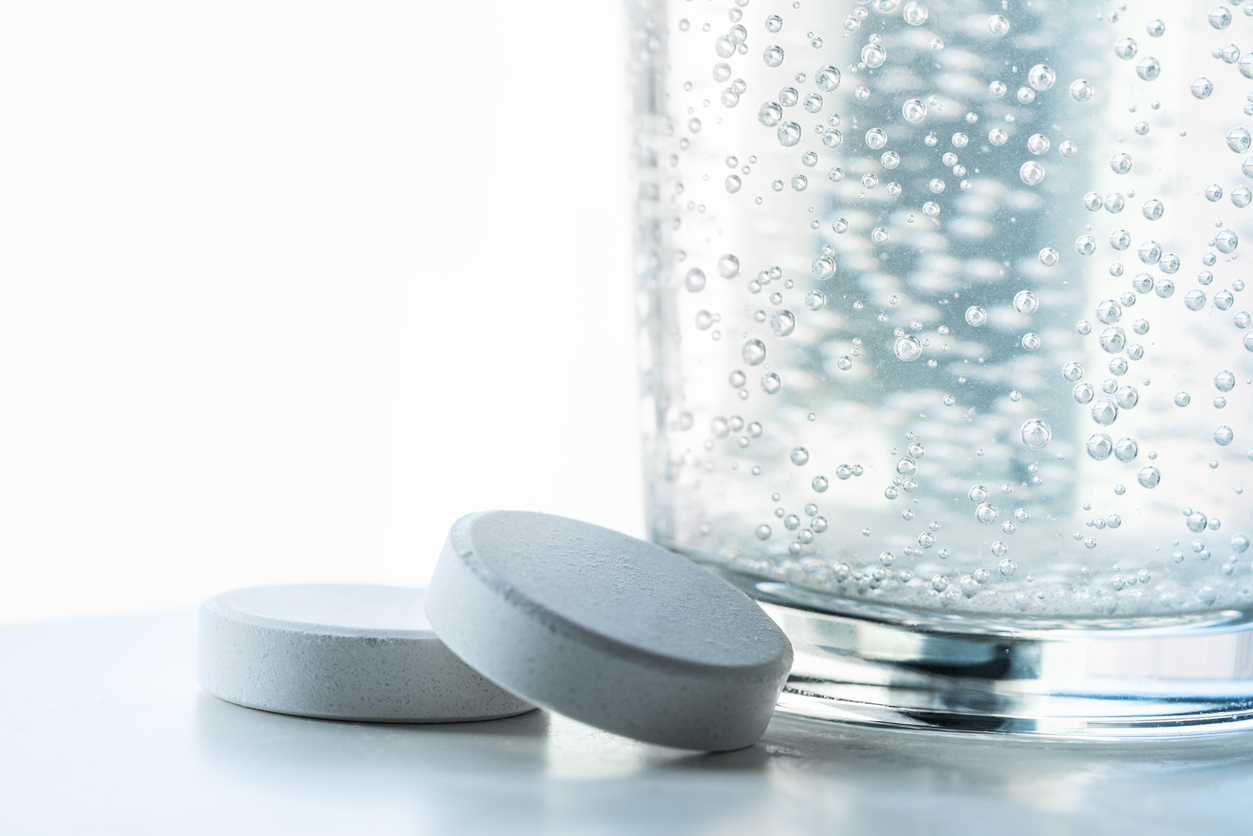
Alka-Seltzer can tame indigestion and heartburn symptoms. It can also help keep your coffee maker clean and free of buildup or residues. After filling the chamber of the coffee maker with plain water, add four Alka-Seltzer tablets. Let them fizz away for 15 minutes before starting the appliance for a cycle (do not add any coffee). The fizzy water will help remove residue. Then, just rinse out the water reservoir, fill it one more time with plain water, and run an additional cycle to rinse everything out.
Use neem oil to treat for lice.
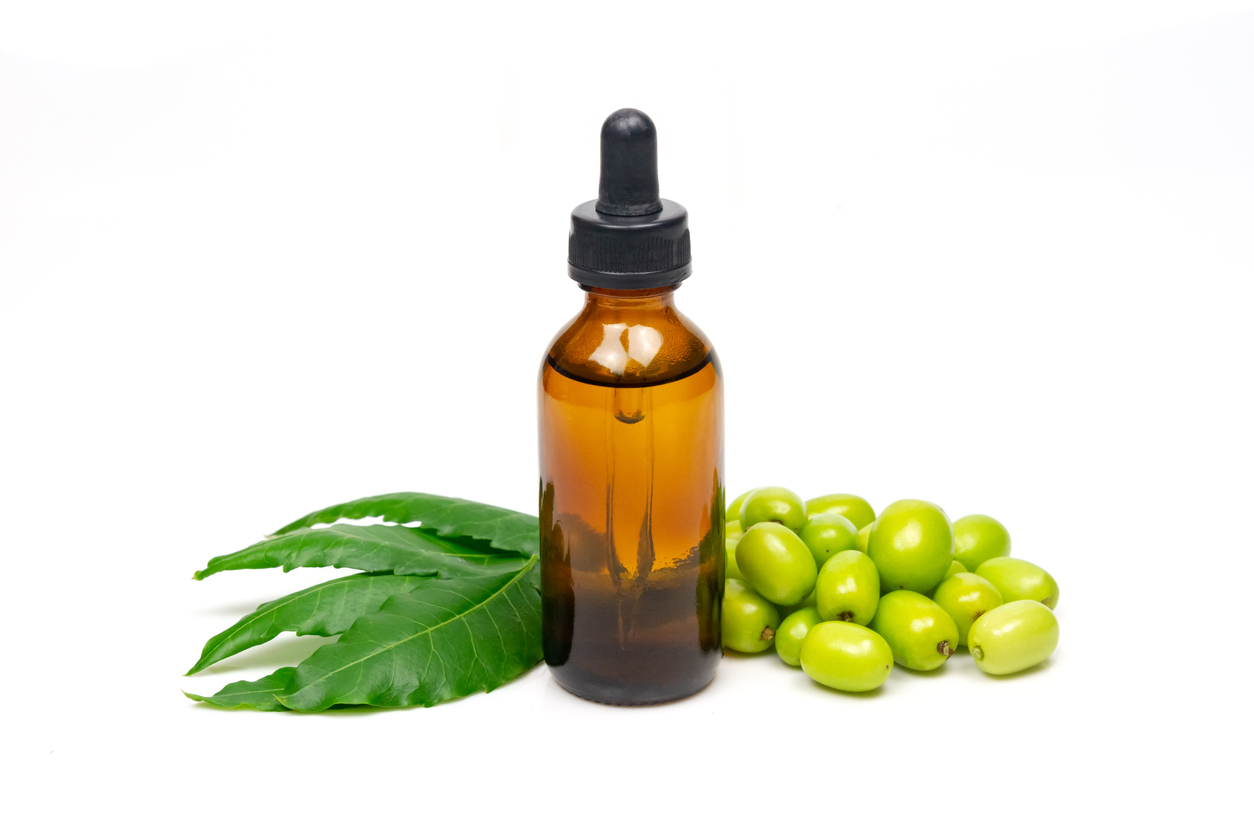
If you’re a gardener, then you may already know that neem oil can help keep pests away from plants, but did you know that this natural product can also help get rid of lice? To try this hack, simply apply neem oil as you would a traditional lice shampoo and let it sit for between 30 minutes and 1 hour before combing through the hair to get rid of any visible lice. Then wash your hair as usual with your regular shampoo.
Just a quick note: while neem oil is safe for the skin, it is very strong and those with sensitive skin might not be able to use it without experiencing redness or itching. For these individuals, try testing the oil on a small section of your scalp or behind your neck before proceeding with a full treatment.
